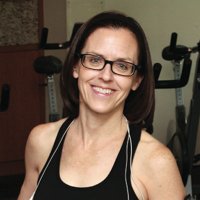Over 200,000 women will be diagnosed with breast cancer this year. Most of them will undergo surgery and some form of additional treatment such as chemotherapy, hormone therapy or radiation.
The process is both physically and emotionally draining. We asked five local breast cancer survivors what strategies they used to cope during treatment. Hopefully, their advice will inspire you or a loved one battling breast cancer.
Write your worries away
“I never joined a support group, because I got a lot out of my system through blogging. And after I started my blog, I began emailing other bloggers who have cancer and other chronic diseases. Blogging is empowering because when you’re a patient, it’s like you’re on an assembly line. People say, ‘Go here. Do this.’ Blogging was a way for me to give my impressions of the doctors and hospitals.”
—Sandi Wisenberg, (pictured above) codirector of the Master of Arts in Creative Writing program at Northwestern University and author of “Cancer Bitch,” cancerbitch.blogspot.com
 Exercise for energy
Exercise for energy
“When I was diagnosed, I was a personal trainer and fitness instructor. My oncologist told me that people who exercise during treatment suffer the fewest side effects. So I continued to teach spin classes. That may be hard for some people, because it’s not like you want to spin if you’re feeling nauseous. But, any exercise is good.”
—Helen Hackett, Deerfield
Remember you still have a right to privacy
“I didn’t tell everyone that I was sick. I’m a freelance writer. I was afraid that some potential employers might think I couldn’t keep my deadlines. And I needed to keep paying those health bills. I told close friends, but not the ‘B List.’ I didn’t want to hear everyone’s opinions about what I should do and get into huge discussions about it, because that’s exhausting itself.”
—Anonymous, Evanston
 Overload on organics
Overload on organics
“During my treatment, I bought everything organic—from fruit to milk to nuts. I found a healthier way to eat. Eating well helped me believe that I was okay, and that positive attitude helped me continue to take care of myself and my family.”
—Inna Kerrigan, Libertyville
Rest and relax
“I was so caught off guard when I was diagnosed. I was 47, with four children. I kept pushing myself to do everything. For instance, I went to my son’s first communion—bald. Looking back, I wouldn’t have put myself in that situation. Your life is going to be hijacked for a year or more. You have to focus on yourself and your family. Also, it’s okay to let people help you. Let people make you dinner and drive your kids around. You can’t be the Superwoman with cancer on the soccer field.”
—Suzette Rowe, Lake Forest

